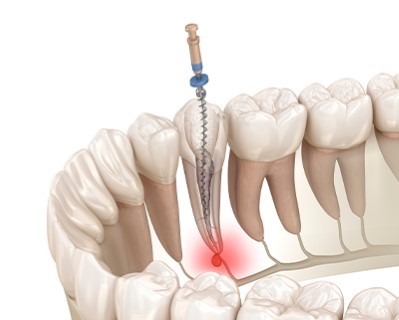Root Canal Treatment
Purpose: A root canal is performed to save a severely damaged or infected tooth by removing the infected or inflamed pulp tissue from inside the tooth. The procedure prevents further infection and relieves pain, restoring the tooth's function without needing extraction.
Procedure: The dentist or endodontist drills into the tooth to access the infected pulp tissue in the root canals. The pulp is then removed, and the inside of the tooth is cleaned, disinfected, and sealed with a filling. In some cases, a crown is placed over the tooth for added protection.
Hospital/Clinic Stay: Root canal treatment is typically done in a dental clinic as an outpatient procedure. The process is completed in one or two visits, depending on the severity of the infection.
Duration of Hospital Stay: No hospital stay is needed for a root canal. Patients can go home after the procedure.
Type of Anesthesia: Local anesthesia is used to numb the area around the affected tooth, ensuring the patient does not feel pain during the procedure. In some cases, sedation may be offered for anxious patients.
Travel After Procedure: Patients can travel after a root canal without any significant restrictions. It is recommended to avoid eating or drinking until the numbness from the anesthesia wears off to prevent injury to the mouth.
Preparation Before Procedure: Preparation for a root canal includes an examination and X-rays to assess the extent of the infection and to determine the shape of the root canals. In some cases, antibiotics may be prescribed before the procedure to manage infection.
Duration of Procedure: The root canal procedure usually takes about 60 to 90 minutes per session. The time varies depending on the complexity of the tooth’s root structure and the extent of the infection. Some cases may require two appointments to complete.
Recovery Time: Recovery from a root canal is generally quick, with most patients experiencing mild discomfort or sensitivity for a few days. Over-the-counter pain relief medications are usually sufficient to manage any discomfort. Normal activities can typically be resumed the day after the procedure.
Estimated Cost: The cost of root canal treatment depends on the tooth involved (molars are more complex and costly than front teeth), the dentist's expertise, and geographical location. Patients should consult their dentist for a detailed cost estimate.
Post-Procedure Care: After a root canal, patients should maintain good oral hygiene by brushing and flossing regularly. A follow-up appointment may be required to place a crown or permanent filling on the tooth. Avoid chewing on hard foods with the treated tooth until it is fully restored to prevent fractures.

